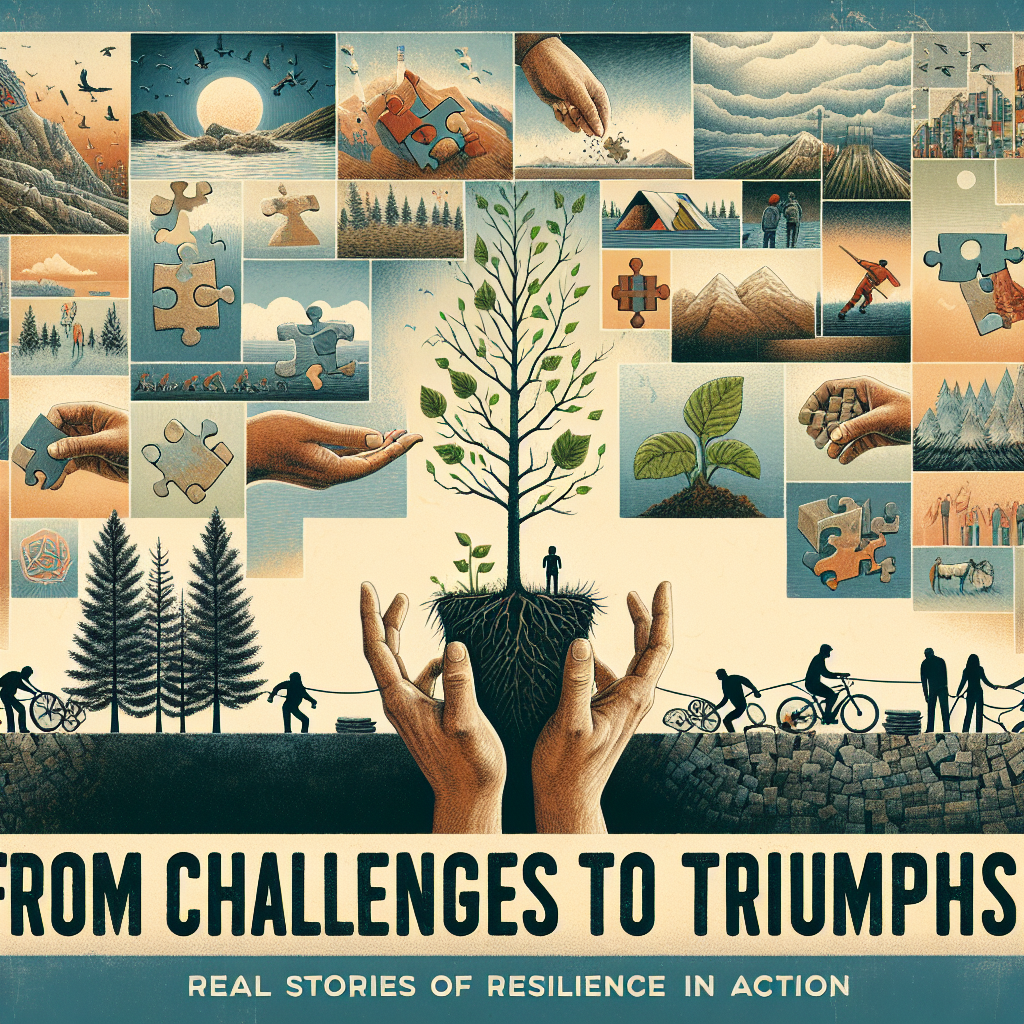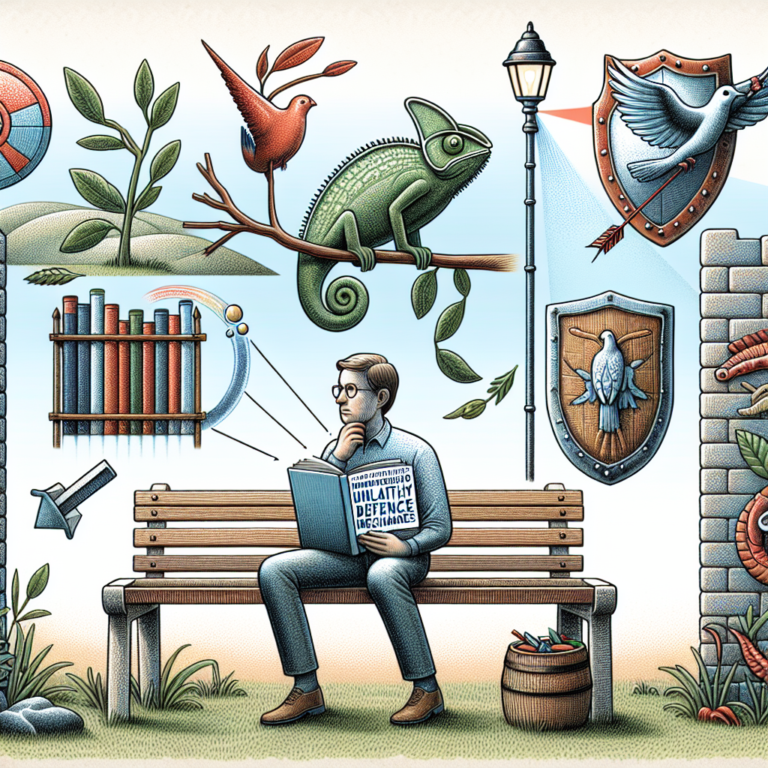
Introduction
In a world that often feels chaotic and unpredictable, stories of resilience remind us of our inherent capacity to overcome adversity. "From Challenges to Triumphs: Real Stories of Resilience in Action" explores the remarkable journeys of individuals who have faced formidable obstacles and turned them into inspiration. These potent narratives illuminate the resilience of the human spirit, shedding light on lessons that resonate far beyond personal stories. As we delve into this theme, we will uncover not only the motivations behind these triumphs but also the actionable insights that can help anyone facing their own challenges.
Understanding Resilience
Before we embark on these empowering stories, it’s essential to understand what resilience truly means. According to psychology, resilience is the ability to bounce back from adversity, trauma, or hardship. It is a dynamic quality that enables individuals to navigate life’s ups and downs. Resilience is not merely about enduring a tough situation; it’s about growing from it, transforming challenges into stepping stones.
The Psychology Behind Resilience
Resilience is not an innate trait but rather a skill that can be cultivated. Researchers have identified several key factors that contribute to resilience:
- Social Support: Strong relationships provide emotional strength and motivation.
- Optimism: A positive outlook creates a belief in the possibility of overcoming challenges.
- Adaptability: Flexibility in thinking can lead to innovative solutions and coping strategies.
- Self-awareness: Understanding one’s emotions leads to better management of stress and reactions.
These components serve as a foundation for individuals who transform challenges into triumphs.
Case Studies of Resilience
Throughout history and across various fields, stories of resilience abound. Below are inspiring narratives showcasing how people have faced overwhelming odds and emerged victorious.
Case Study 1: Malala Yousafzai – The Education Advocate
Background: Malala Yousafzai grew up in the Swat Valley of Pakistan, where the Taliban often attacked the right to education for girls. In 2012, she was shot in the head for speaking out against this injustice.
The Challenge: Surviving an assassination attempt, Malala faced not just physical recovery but also the emotional and psychological scars of such trauma. Despite the fear that engulfed her community, she didn’t back down.
The Triumph: Malala became a global advocate for girls’ education. In 2014, she was awarded the Nobel Peace Prize, becoming the youngest recipient in history. Her story exemplifies how one can turn a life-threatening challenge into a platform for positive change.
Relevance: Malala’s resilience shows that even in the face of life’s most severe obstacles, it is possible to transform pain into purpose.
Case Study 2: Oprah Winfrey – From Poverty to Power
Background: Oprah Winfrey’s early life was shadowed by poverty, abuse, and instability. Growing up in rural Mississippi and later in inner-city Milwaukee, she faced numerous challenges that could have defined her future.
The Challenge: Despite the prevalence of negative circumstances, she faced her challenges head-on, utilizing any opportunity to pursue education and self-improvement.
The Triumph: Oprah became a media mogul and philanthropist, known for her profound impact on television and literature. Her journey highlights the importance of resilience through education and self-belief.
Relevance: Oprah’s story illustrates that resilience can catalyze incredible life transformation, proving that our beginnings do not determine our outcomes.
Case Study 3: J.K. Rowling – The Power of Persistence
Background: Before the global phenomenon of Harry Potter, J.K. Rowling faced numerous rejections from publishers while grappling with life as a single mother and living on welfare.
The Challenge: Rowling’s struggle included financial insecurity, depression, and social isolation. Yet, she used her talent for storytelling as a refuge and a driving force.
The Triumph: After 12 rejections, she finally found a publisher, launching a franchise that has become one of the best-selling book series in history. Rowling’s journey is one of unwavering tenacity and vision.
Relevance: Rowling’s tale serves as a reminder that persistence in the face of repeated challenges can lead to unexpected triumphs.
The Role of Community in Resilience
Community support plays a vital role in enabling individuals to overcome challenges. Studies show that social bonds enhance our ability to manage stress and adversity. Here’s a brief look at how community impacts resilience.
Factors Enhancing Community Resilience
| Factors | Description |
|---|---|
| Mutual Support | A network where individuals offer emotional and practical help. |
| Shared Resources | Access to community programs and initiatives that provide aid. |
| Collective Efforts | Group collaboration can foster strength and a sense of belonging. |
Community Stories of Resilience
Local Initiatives: Numerous communities around the globe have come together after disasters, such as hurricanes or wildfires. One inspiring example is how towns devastated by Hurricane Katrina banded together to rebuild—not just structures, but also the very fabric of their communities.
Crisis Response Groups: Organizations that emerge during crises, like the Red Cross, often exemplify community resilience. Volunteers come together, showcasing how collective strength can facilitate recovery.
Building Your Resilience Toolkit
The journey from challenges to triumphs is deeply personal, but there are actionable steps that everyone can take to build and strengthen their resilience:
- Cultivate a Growth Mindset: Embrace challenges as opportunities for learning and growth.
- Establish Strong Relationships: Invest time in building a supportive network.
- Practice Self-Care: Prioritize mental and physical well-being through regular exercise, balanced nutrition, and mindfulness practices.
- Set Realistic Goals: Break challenges into manageable steps to prevent feeling overwhelmed.
- Learn from Setbacks: Reflect on past challenges to understand what strategies worked or didn’t.
Inspirational Quotes on Resilience
As we reflect on resilience, here are some encouraging words from influential figures:
- “Our greatest glory is not in never falling, but in rising every time we fall.” — Confucius
- “Resilience is the capacity to recover quickly from difficulties; toughness.” — Unknown
- “What lies behind us and what lies before us are tiny matters compared to what lies within us.” — Ralph Waldo Emerson
These quotes encapsulate the essence of resilience, illustrating its importance in overcoming life’s adversities.
Conclusion
"From Challenges to Triumphs: Real Stories of Resilience in Action" reminds us that resilience is not merely a trait but a journey of continual growth and strength. By studying the lives of those who have triumphed over adversity, we discover powerful insights and inspiration that can guide our paths through difficult times. As we reflect on these narratives, let us remember that with the right mindset, support, and strategies, we too can transform challenges into triumphs.
FAQs
1. What is resilience, and why is it important?
Resilience is the ability to recover from difficulties. It’s essential because it helps individuals manage stress, overcome challenges, and thrive in the face of adversity.
2. Can resilience be taught?
Yes, resilience can be cultivated through various strategies, including building strong relationships, fostering a growth mindset, and practicing self-care.
3. How can I develop my resilience?
You can develop resilience by setting realistic goals, maintaining a supportive network, learning from setbacks, and practicing self-reflection.
4. Are there any resources for building resilience?
Yes, many resources are available, including books on personal development, online courses, and workshops focused on emotional intelligence and coping skills.
5. Can resilience help in professional settings?
Absolutely! Resilience contributes to improved workplace performance, job satisfaction, and effective teamwork, allowing individuals and organizations to navigate challenges more effectively.
By embracing resilience, we can create our own stories of triumph, ultimately inspiring others to forge their path from challenges to victories.















